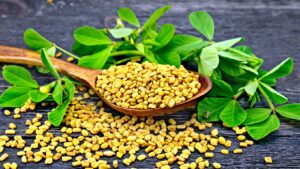In a world dominated by quick fixes and fad diets, the allure of natural solutions like herbal remedies for weight loss is steadily gaining traction. People are increasingly turning to these age-old practices, seeking a healthier path to shed those extra pounds. Herbal remedies, rooted in centuries of traditional medicine, offer a gentler approach compared to synthetic alternatives.
These natural solutions are not just about burning fat; they aim to enhance overall well-being. Herbs like green tea, Garcinia cambogia, and cayenne pepper have shown promise in boosting metabolism and curbing appetite. By incorporating these into their daily routines, individuals can potentially achieve their weight loss goals while maintaining a balanced lifestyle.
As more people embrace holistic health, understanding the potential of herbal remedies becomes essential. This exploration into nature’s pharmacy reveals not only a path to weight loss but also a journey towards a more sustainable and health-conscious way of living.
Herbal Remedies for Weight Loss
Many people explore herbal remedies for weight loss due to their natural benefits and potential health improvements. These remedies often contain compounds that support metabolism, appetite suppression, and fat oxidation.
Green Tea Extract
 Green tea extract is known for its high antioxidant content, notably catechins like EGCG. These compounds may enhance the body’s metabolic rate, facilitating more efficient fat burning. A study in the “American Journal of Clinical Nutrition” revealed that green tea extract can increase energy expenditure and fat oxidation, offering weight loss benefits when combined with a balanced diet.
Green tea extract is known for its high antioxidant content, notably catechins like EGCG. These compounds may enhance the body’s metabolic rate, facilitating more efficient fat burning. A study in the “American Journal of Clinical Nutrition” revealed that green tea extract can increase energy expenditure and fat oxidation, offering weight loss benefits when combined with a balanced diet.
Garcinia Cambogia
Derived from a tropical fruit, Garcinia cambogia is noted for its active ingredient, hydroxycitric acid (HCA). HCA might help reduce appetite and prevent fat storage by inhibiting a key enzyme in the body. According to a meta-analysis in the “Journal of Obesity,” Garcinia cambogia displayed moderate efficacy in short-term weight loss, though effects can vary.
Forskolin
Forskolin is extracted from the Indian coleus plant and is believed to aid in weight loss by boosting cellular levels of cyclic adenosine monophosphate (cAMP), which can enhance the breakdown of stored fats. A study published in “Obesity Research” highlighted that forskolin might support belly fat reduction and prevent weight gain in females, offering possible benefits for specific demographics.
Fenugreek
Fenugreek seeds contain fibers that may function as appetite suppressants. They could increase satiety and reduce overall calorie intake. Research from the “European Journal of Clinical Pharmacology” indicates that fenugreek supplementation can potentially decrease fat consumption and appetite, making it a viable option for those looking to manage weight through herbal means.
How Herbal Remedies Aid Weight Loss
Herbal remedies play a significant role in supporting weight loss through various mechanisms. By incorporating these natural solutions, individuals can enhance their efforts towards a healthier lifestyle.
Appetite Suppression
 Certain herbs assist in controlling hunger by promoting a feeling of fullness. Fenugreek seeds, for instance, contain high levels of soluble fiber, which expands in the stomach and slows digestion. This delay makes one feel satisfied longer, reducing overall calorie intake. Garcinia cambogia is another herb with potential appetite-suppressing properties due to its active ingredient hydroxycitric acid (HCA), which may increase serotonin levels linked to satiety.
Certain herbs assist in controlling hunger by promoting a feeling of fullness. Fenugreek seeds, for instance, contain high levels of soluble fiber, which expands in the stomach and slows digestion. This delay makes one feel satisfied longer, reducing overall calorie intake. Garcinia cambogia is another herb with potential appetite-suppressing properties due to its active ingredient hydroxycitric acid (HCA), which may increase serotonin levels linked to satiety.
Metabolism Boosting
Increasing metabolic rate is crucial for effective weight loss. Green tea extract is renowned for its catechin content, particularly epigallocatechin gallate (EGCG), which can potentially elevate metabolic rates and enhance fat oxidation during exercise. Cayenne pepper contains capsaicin, a compound that may accelerate metabolism and promote the breakdown of fats for energy use. These herbs work synergistically to give a slight boost to calorie expenditure.
Fat Absorption Reduction
Reducing the body’s absorption of fat can improve weight management outcomes. Psyllium husk is a fiber-rich herb that forms a gel in the digestive tract, potentially binding to dietary fats and lowering their absorption. Similarly, white kidney bean extract is believed to inhibit alpha-amylase, an enzyme involved in carbohydrate breakdown, thus reducing the amount of fat stored. These herbs, when used judiciously, may support effective fat management.

